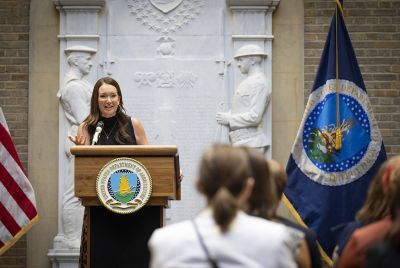Philip Hammond: 'Terror apologists' must share blame
Campaign groups who "apologise" for those who commit acts of violence should share the blame, British Foreign Secretary Philip Hammond said on 10 March.
"The exposure of the identity of one of the most murderous ISIL terrorist over the last few weeks has seen some seeking to excuse the terrorists and point the finger of blame at agencies themselves. We are absolutely clear.
"The responsibility for acts of terror rests with those who commit them. But a huge burden of responsibility also lies with those who act as apologists for them," said Hammond in a speech in London.
Although Hammond did not name the "apologists", Cage, a Muslim campaign group, has drawn criticism over statements about the Islamic State militant known as "Jihadi John".
Cage was in contact several years ago with Kuwaiti-born Londoner, Mohammed Emwazi, at a time when he was on the radar of Britain's intelligence services over signs of radicalization.
Since Emwazi was identified on 26 February as the man in a black balaclava who appears in Islamic State beheading videos, Cage members have said he was once a "beautiful young man" and have blamed the intelligence services for radicalizing him.
Set up by a group of London Muslims to support British suspects being held by the United States in Guantanamo Bay, Cage says its aims are "to empower communities affected by the War on Terror and to highlight abuses of due process".
Hammond also said lessons have been learned and weaknesses identified in the case of three British schoolgirls from east London who are believed to have joined Islamic State militants in Syria.
Recently released security footage appears to show the three schoolgirls waiting for hours at a bus station in Turkey before travelling to a city near the Syrian border.
Turkey has complained that Britain was late in notifying it about the girls' arrival, a charge London rejects.
Turkish police are trying to identify people seen in the footage helping the girls with their luggage at the bus station.
"Turkey is doing huge amounts and I'd like to record publicly the appreciation we get from the Turkish authorities but we're all learning as we go on and I think this particular case of the three schoolgirls from east London has identified some weaknesses and things we can improve but also identified some steps that people in the community have to take to keep us safe as well.
"Parents have responsibilities, schools and community workers have responsibilities, as well as the authorities and airports and airline operators.
"It's about coming together in this case to protect children - minors, juveniles - who must be protected from themselves, going about something that will be deeply damaging to their own interests as well as our national security interests," Hammond said.
British police said that about 60 young women and girls were now believed to have travelled to Syria from Britain, including about 22 in the last year.
British security agencies estimate that about 600 British Muslims have travelled to the region to join the conflict, some with Islamic State, the extremist Sunni Muslim group that controls a swathe of territory in Syria and Iraq.
© Copyright IBTimes 2025. All rights reserved.





















